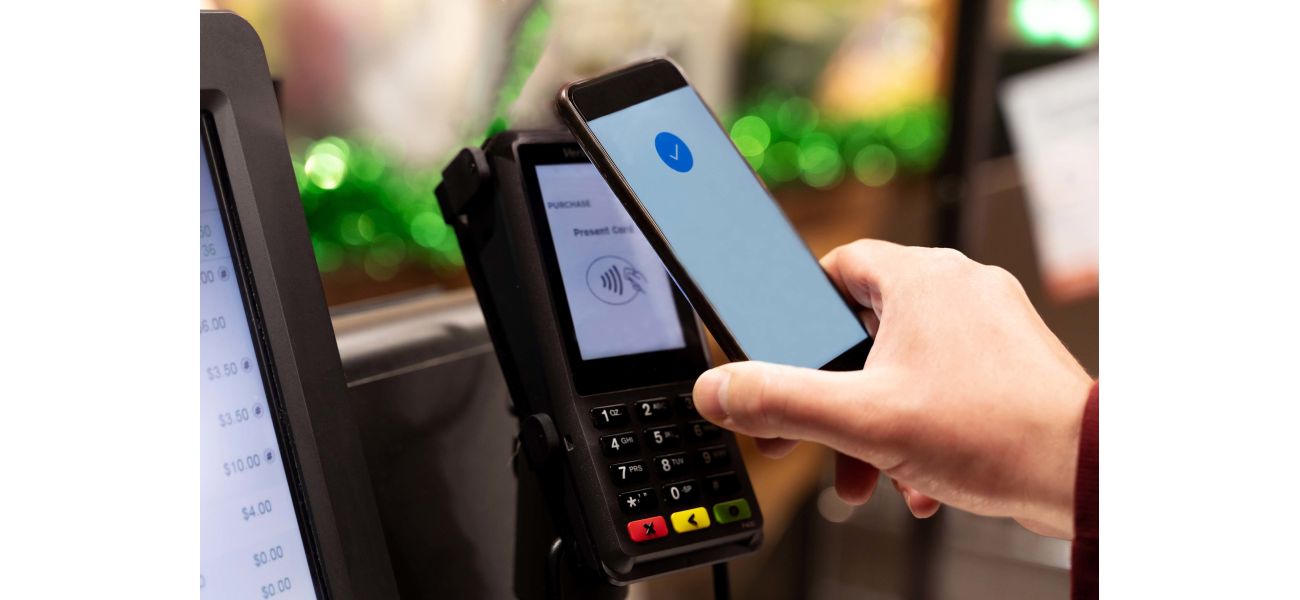What is the maximum amount companies can charge for card transactions.
Surcharges above a certain amount are not allowed.
September 4th 2024.

In the world of business, companies have the freedom to decide which payment methods they will accept. In fact, they even have the right to turn down cash as a form of payment. This is exactly what Aussie cafe Gloria Jean's has chosen to do by implementing a trial of cashless payments in some of their shops.
If you want to use a debit or credit card to pay for your purchase, you may end up paying extra. This has been a hot topic of debate lately, with the Prime Minister himself weighing in on the issue. The nation's top bank executives are in favor of banning credit card surcharges, but businesses are pushing back against this idea.
It's worth noting that there are rules in place, according to the Australian Competition and Consumer Commission (ACCC), that companies must follow. So how exactly does it all work? Well, according to the ACCC, businesses are allowed to charge a surcharge for card payments, but it must not exceed the cost of using that particular payment method. In other words, they must be able to prove that the surcharge is based on their actual costs.
To give you an idea of what these costs might be, the Reserve Bank of Australia has estimated the average expenses for different payment types. For Eftpos, it's less than half a percent, while for Visa and Mastercard debit, it ranges from half a percent to one percent. For Visa and Mastercard credit, it's between one and one and a half percent. It's important to note that these rules do not apply to Diners Club and American Express cards, as they tend to cost businesses more to process.
However, many businesses simply charge a set fee for card payments. This fee may be applied if you are paying less than a certain amount. It's allowed, but it must not be excessive. If you feel that a business is charging an unreasonable surcharge, you can report them to the ACCC.
Let's take a closer look at how these rules work. For instance, a company may decide to charge a 50-cent surcharge for card payments under $10. According to the ACCC's example, if the cost of accepting credit card payments is 1 percent, and the business charges a 1 percent surcharge, a customer buying a $4 coffee would only have to pay an additional four cents. However, if the business decides to charge a 50-cent surcharge for all card payments under $10, and a customer buys a $4 coffee, the surcharge would be equivalent to 12.5 percent. This would exceed the actual cost of accepting that particular transaction, according to the ACCC.
If you dig a little deeper, you'll find that there are even more rules to follow. For example, if a business does not accept cash and only allows card payments, they must include the surcharge in the displayed price. If you suspect that a business is not following these rules, you should talk to them directly. You can also report any concerns to the ACCC.
In conclusion, it's important for businesses to adhere to these rules when it comes to charging surcharges for card payments. As a consumer, it's always a good idea to be aware of your rights and to speak up if you feel that a business is not following the guidelines. And remember, you can catch all the action of the Paralympic Games Paris 2024 live and free on Channel 9, 9Gem, and 9Now, with every event streaming ad-free and in 4K on Stan Sport.
If you want to use a debit or credit card to pay for your purchase, you may end up paying extra. This has been a hot topic of debate lately, with the Prime Minister himself weighing in on the issue. The nation's top bank executives are in favor of banning credit card surcharges, but businesses are pushing back against this idea.
It's worth noting that there are rules in place, according to the Australian Competition and Consumer Commission (ACCC), that companies must follow. So how exactly does it all work? Well, according to the ACCC, businesses are allowed to charge a surcharge for card payments, but it must not exceed the cost of using that particular payment method. In other words, they must be able to prove that the surcharge is based on their actual costs.
To give you an idea of what these costs might be, the Reserve Bank of Australia has estimated the average expenses for different payment types. For Eftpos, it's less than half a percent, while for Visa and Mastercard debit, it ranges from half a percent to one percent. For Visa and Mastercard credit, it's between one and one and a half percent. It's important to note that these rules do not apply to Diners Club and American Express cards, as they tend to cost businesses more to process.
However, many businesses simply charge a set fee for card payments. This fee may be applied if you are paying less than a certain amount. It's allowed, but it must not be excessive. If you feel that a business is charging an unreasonable surcharge, you can report them to the ACCC.
Let's take a closer look at how these rules work. For instance, a company may decide to charge a 50-cent surcharge for card payments under $10. According to the ACCC's example, if the cost of accepting credit card payments is 1 percent, and the business charges a 1 percent surcharge, a customer buying a $4 coffee would only have to pay an additional four cents. However, if the business decides to charge a 50-cent surcharge for all card payments under $10, and a customer buys a $4 coffee, the surcharge would be equivalent to 12.5 percent. This would exceed the actual cost of accepting that particular transaction, according to the ACCC.
If you dig a little deeper, you'll find that there are even more rules to follow. For example, if a business does not accept cash and only allows card payments, they must include the surcharge in the displayed price. If you suspect that a business is not following these rules, you should talk to them directly. You can also report any concerns to the ACCC.
In conclusion, it's important for businesses to adhere to these rules when it comes to charging surcharges for card payments. As a consumer, it's always a good idea to be aware of your rights and to speak up if you feel that a business is not following the guidelines. And remember, you can catch all the action of the Paralympic Games Paris 2024 live and free on Channel 9, 9Gem, and 9Now, with every event streaming ad-free and in 4K on Stan Sport.
[This article has been trending online recently and has been generated with AI. Your feed is customized.]
[Generative AI is experimental.]
0
0
Submit Comment





